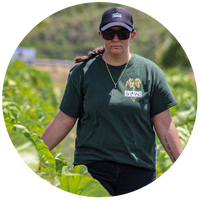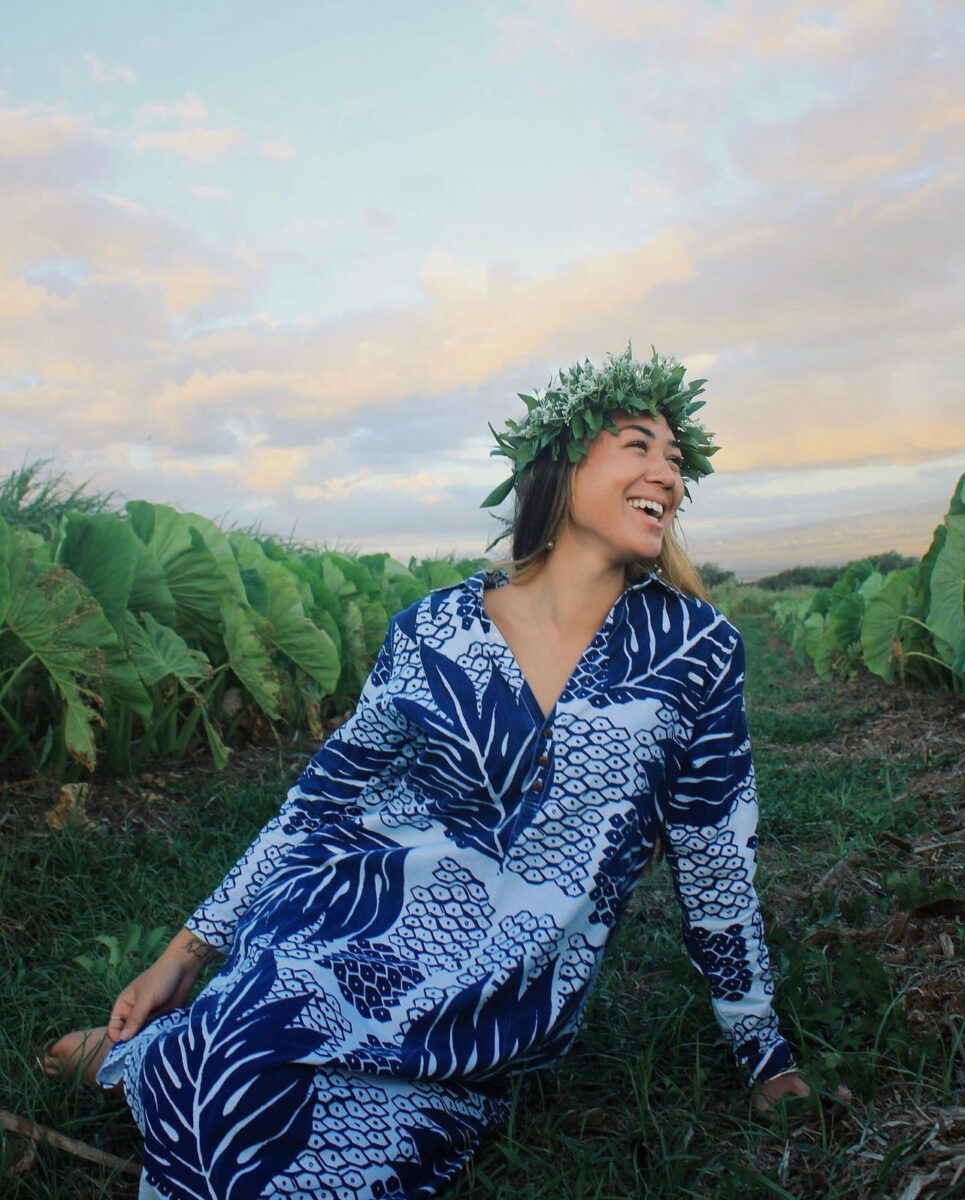

In a heartening shift, a Native Hawaiian farmer now tends to the land that was once exploited for sugarcane and pineapple production by those disconnected from the earth. This restoration effort seeks to revive the sacred relationship between the people and the Native Hawaiian soil, cultivating a deep love and respect for the land.
Hawaii Taro Farm is situated in the heart of Waikapu, Maui. On a potential 300-acre parcel. Agriculture businesses practiced mono culture farming practices to cultivate the land that was once used for sugarcane and pineapple for more than 140 years. As a result, the landscape was devoid of the variety of biological life needed for the growth of crops high in nutrients.
Hawaii Taro Farm will potentially oversee the easement, which supports a multitude of agriculture operations. A cross section of traditional, transitional, regenerative , and conventional farmers, work together to provide fresh produce for the Maui community.
Meet the Family
Kiana Reyes

Communication Coordinator
Bobby Pahia

Farmer/Educator/Founder
Juanita Pahia

Farmer/Founder
Hawaii Taro Farm exemplifies the values of the indigenous host culture of these islands.

Taro is considered the source of life, an ancestor, in Hawaiian culture. Creating deeper connections is how we help begin to heal the hearts and souls of Hawaiians. The intention is to revive the practice of growing kalo.
- Increased taro production will increase food insecurity and lower prices for what should be a mainstay food, given its cultural connections and health benefits.
- Kalo is a great source of healthy fiber, various nutrients, and antioxidants, including potassium, magnesium, and vitamins B6, C, and E. It is believed to help reduce the risk of diabetes, heart disease, and cancer and is good for gut health and weight loss.
- Educating Maui residents about the value of kalo nutritionally, spiritually, and economically will encourage residents to choose a locally grown product, strengthening the fabric of our local food system and our independence from imported foods. It also connects Hawaiʻi and Pacific Islanders to their culture
